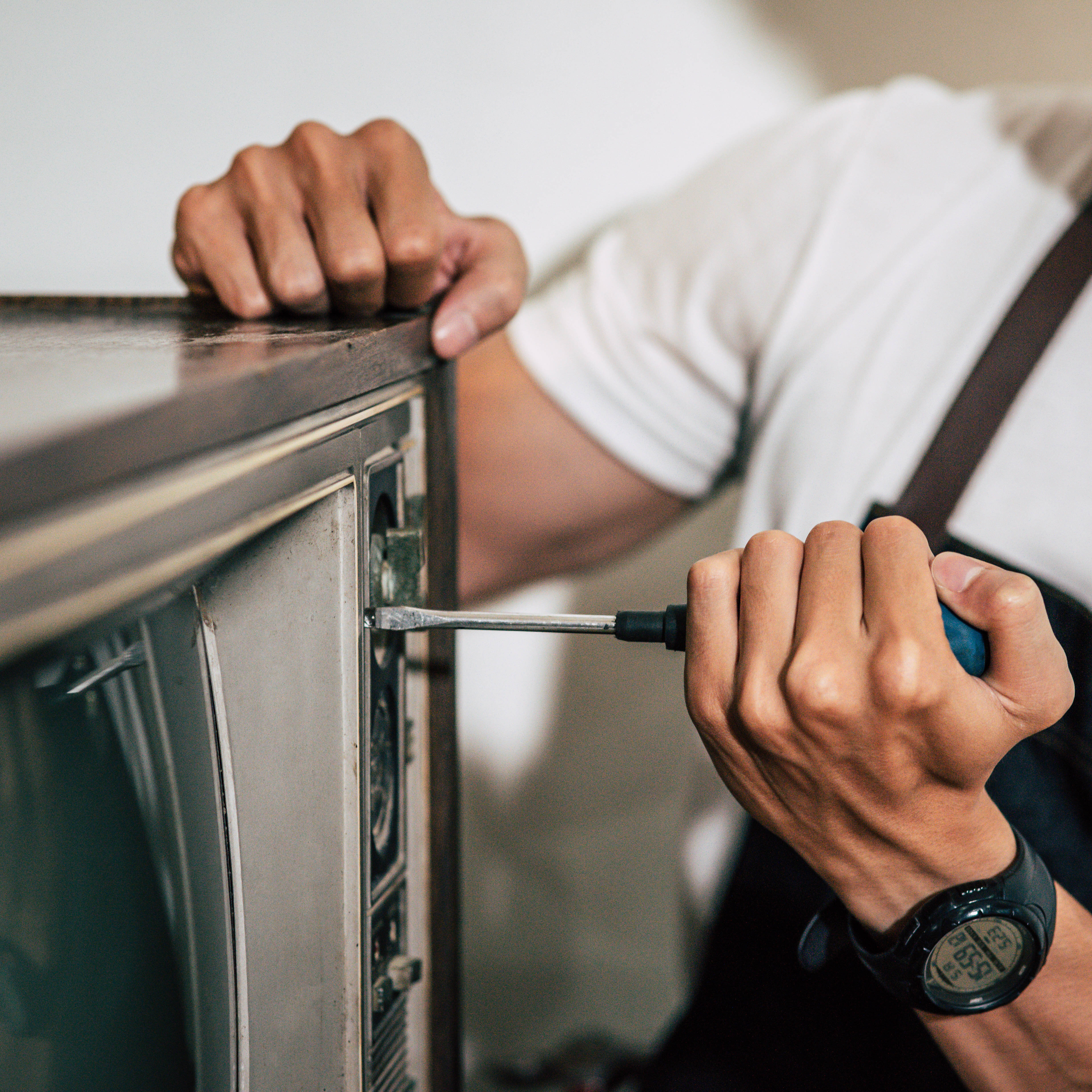Is your Bosch refrigerator not cooling like it used to? You rely on your fridge to keep your food fresh and your drinks cold, so when it stops working properly, it can be frustrating and stressful.
But don’t worry—you’re not alone, and there are simple steps you can take to fix the problem. You’ll discover easy-to-understand tips and solutions to get your Bosch refrigerator back to its best. Keep reading to find out what might be causing the issue and how you can solve it quickly.

Credit: tech-angels.ca
Common Cooling Issues
Bosch refrigerators are known for quality and efficiency. Yet, cooling problems can occur. Understanding common causes helps fix the issue fast. These problems often block cold air or stop the fridge from working well.
Knowing what to check can save time and money. It also prevents food spoilage and keeps your fridge running longer. Here are the most frequent cooling issues found in Bosch refrigerators.
Frost Buildup Problems
Frost buildup blocks cold air circulation inside the fridge. It forms on the evaporator coils. Too much frost stops the fridge from cooling properly. This issue often happens if the defrost system fails. Remove frost regularly and check the defrost heater and timer.
Faulty Thermostat
The thermostat controls the fridge temperature. A faulty thermostat may not tell the compressor to start. This causes the fridge to stop cooling. Testing and replacing a broken thermostat can restore cooling power quickly.
Blocked Air Vents
Air vents spread cold air throughout the fridge and freezer. Blocked vents stop cold air from moving properly. This creates uneven cooling and warm spots. Keep vents clear of food or containers to maintain airflow.
Dirty Condenser Coils
Condenser coils release heat from the fridge. Dust and dirt on coils make heat removal hard. This forces the compressor to work harder and less efficiently. Clean the coils regularly for better cooling and energy use.
Malfunctioning Evaporator Fan
The evaporator fan moves cold air inside the fridge. If the fan stops working, cold air does not reach the fridge. This causes warm temperatures and food spoilage. Check the fan motor and blades for damage or blockages.
Quick Diy Fixes
Facing a Bosch refrigerator that is not cooling can be frustrating. Some problems have simple solutions you can try yourself. These quick DIY fixes often restore proper cooling without waiting for a technician. Follow these easy steps to check and fix common issues.
Defrosting The Freezer
Ice buildup can block cold air flow inside the freezer. Turn off the refrigerator and remove all items. Let the ice melt naturally or use a bowl of warm water to speed up defrosting. Avoid sharp tools to prevent damage. Once fully defrosted, clean any water and restart the fridge.
Cleaning The Coils
Dirty condenser coils reduce cooling efficiency. Find the coils at the back or underneath the fridge. Unplug the appliance before cleaning. Use a vacuum or a soft brush to remove dust and dirt. Clean coils help the fridge cool better and save energy.
Checking And Adjusting Temperature Settings
Incorrect temperature settings can cause cooling issues. Locate the thermostat dial inside the fridge. Set it to the recommended temperature, usually between 37°F and 40°F (3°C to 4°C). Give the fridge time to adjust and check if it cools properly.
Unblocking Air Vents
Air vents allow cold air to circulate inside the fridge. Check for items blocking these vents. Rearrange food containers to keep vents clear. Proper air flow maintains an even temperature and prevents warm spots.
When To Reset The Refrigerator
Knowing when to reset your Bosch refrigerator can save time and avoid costly repairs. Resetting helps clear minor errors that affect cooling. It is a simple step before calling a technician. Look for unusual behavior like warm temperatures or error lights. These signs suggest a reset might fix the issue.
Power Cycling Steps
Start by unplugging the refrigerator from the power outlet. Wait for at least five minutes to let the system fully shut down. This pause helps clear temporary faults in the control board. After waiting, plug the fridge back in. Check if the cooling improves within an hour. Power cycling often resolves simple glitches without further action.
Using The Control Panel Reset
Locate the control panel on your Bosch refrigerator. Press and hold the reset button for about three seconds. Some models may require pressing a combination of buttons, like “Alarm” and “Light.” The display might blink or show a message confirming the reset. This step refreshes the system settings and can restore normal cooling functions.
Inspecting Key Components
When a Bosch refrigerator is not cooling, some parts may not work well. Checking these parts helps find the problem. This saves time and money. Start by looking at the thermostat, fan, and door seals. These parts play a big role in cooling.
Careful inspection can show if any part is broken or dirty. Fixing or replacing the faulty part can bring back the cool air. Let’s explore how to check these parts step by step.
Testing The Thermostat
The thermostat controls the fridge temperature. It tells the compressor when to run or stop. Use a multimeter to test it. First, unplug the fridge for safety. Then remove the thermostat knob and cover. Find the thermostat terminals and test for continuity. No continuity means the thermostat is bad. Replace it to restore cooling.
Examining The Evaporator Fan
The evaporator fan moves cold air inside the fridge. If it stops working, cooling fails. Open the freezer section to find the fan. Check if it spins freely by hand. Listen for strange noises when the fridge runs. A broken fan motor or blade needs replacement. Clean any dust or ice blocking the fan.
Checking The Door Seals
Door seals keep cold air inside. Weak or torn seals let warm air in. This forces the fridge to work harder. Look for gaps, cracks, or dirt on the seals. Press the seal against the fridge body. If it does not stick well, replace it. Clean seals regularly to keep them soft and tight.
When To Call A Professional
Knowing when to call a professional for a Bosch refrigerator not cooling is important. Some problems need expert skills and tools. Trying to fix these yourself may cause more damage or be unsafe.
Simple issues like a dirty condenser coil can be cleaned at home. But other problems require a technician’s help. Here are some signs you need professional service.
Refrigerant Leaks
Refrigerant keeps the fridge cold. A leak means the fridge cannot cool properly. Detecting leaks needs special tools and knowledge. Handling refrigerants is dangerous and illegal without certification. A trained technician can find and fix leaks safely.
Compressor Issues
The compressor pumps refrigerant through the fridge. If it fails, cooling stops. Compressor problems cause strange noises or constant running. Fixing or replacing compressors is complex and costly. Only professionals should handle compressor repairs.
Electrical Faults
Electrical problems can stop the fridge from working. Faulty wiring or damaged parts cause power loss or short circuits. Diagnosing electrical faults needs experience and testing equipment. Attempting electrical repairs alone can be risky. Always hire a qualified technician for these issues.

Credit: smartapplianceservices.com
Preventive Tips For Better Cooling
Keeping your Bosch refrigerator cool is key to preserving food and saving energy. Simple steps can prevent cooling issues and extend your fridge’s life. Follow these tips for better cooling and smooth operation.
Regular Cleaning Schedule
Clean the refrigerator coils every few months. Dust and dirt block airflow and reduce cooling. Wipe the door seals with a damp cloth. Dirty seals cause cold air to escape. Remove expired food to avoid bad smells and freezer burn. A clean fridge runs more efficiently and stays colder.
Proper Food Storage
Do not overload your fridge. Air needs space to circulate around food. Store food in airtight containers to keep moisture out. Keep raw and cooked foods separate to prevent contamination. Place hot food outside until it cools. Proper storage helps your fridge cool evenly and keeps food fresh longer.
Maintaining Ideal Temperature
Set your fridge temperature between 37°F and 40°F (3°C to 4°C). Keep the freezer at 0°F (-18°C). Avoid frequent door opening to maintain steady temperature. Check temperature settings regularly with a fridge thermometer. Correct temperature keeps food safe and the fridge running well.

Credit: smartapplianceservices.com
Frequently Asked Questions
Why Is My Bosch Refrigerator Not Cooling Properly?
A dirty condenser coil or blocked vents can stop cooling. Check and clean them first.
How Can I Fix A Bosch Fridge That Won’t Cool?
Start by unplugging it for 5 minutes. Clean coils and check door seals for leaks.
What Causes Bosch Fridge Temperature To Rise Suddenly?
Power outages, faulty thermostat, or a blocked fan can cause temperature spikes.
Can A Dirty Condenser Coil Affect Bosch Refrigerator Cooling?
Yes, dirt blocks heat release and reduces cooling efficiency. Clean coils regularly.
When Should I Call A Technician For Bosch Fridge Cooling Issues?
Call if cleaning and simple fixes don’t work or if strange noises continue.
Conclusion
A Bosch refrigerator not cooling can cause real trouble at home. Check basic issues like power and door seals first. Clean the condenser coils to help cooling work better. Listen for strange noises that may signal a problem inside. Sometimes, simple fixes save you a costly repair.
Don’t ignore the issue; cold food matters. If problems continue, contact a trusted technician to get it fixed fast. Keep your fridge running well to protect your food and peace of mind. Small steps can make a big difference.
